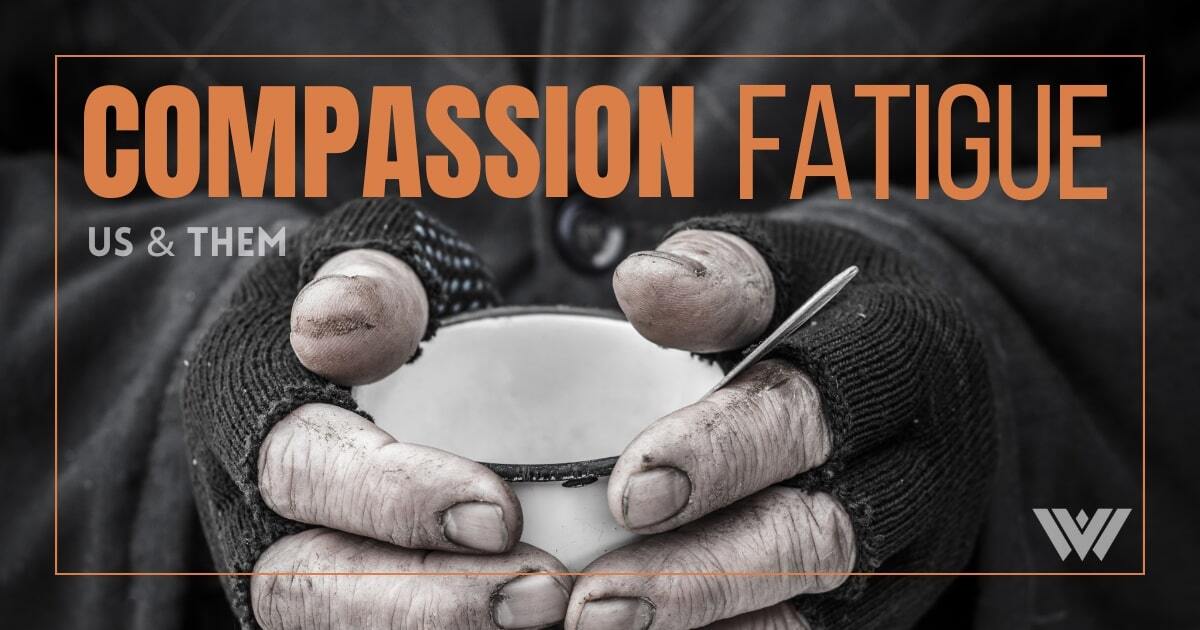Homelessness has been on the rise since 2016, and the pandemic only exacerbated an acute shortage of resources to help people living on the streets. Many communities are struggling to provide support, even as some homeless people turn away from emergency shelters and remain in outdoor encampments.
In Charleston, West Virginia, the city’s opioid response program also focuses on support for people who are homeless. Tent cities have been a focus at the state legislature as debate continues over how to help people living on the street.
At the same time, some people say they’re more afraid of people living on the street than in the past. Providing sustained care for homeless people continues to elude and divide even well-meaning and determined communities.
Earlier this year, our Us & Them episode called Compassion Fatigue received a second place award from the Virginias AP Broadcasters for Best Podcast.
This episode of Us & Them is presented with support from the West Virginia Humanities Council and the CRC Foundation.
Subscribe to Us & Them on Apple Podcasts, NPR One, RadioPublic, Spotify, Stitcher and beyond.
Photo Credit: Julie Blackwood
Myers established ground rules for those sheltering on the steps. But this did not resolve the concerns of some community members in and outside the congregation. In his first days in Charleston, Rev. Myers was quickly immersed in the debate over how best to help people living on the street.
(Click here to view Rev. Myer’s sermon about caring for homeless people.)
Photo Credit: Trey Kay/West Virginia Public Broadcasting
“There was a group of parents from this school right here who actually called for a meeting with the mayor of our town because of instances with homeless or criminal vagrants on school property, near school property, banging on parents’ car doors, children in the back screaming,” she said, standing outside the preschool playground where her grandson plays. “There have been children playing on this actual playground where homeless people will threaten them. My grandson has witnessed someone walking down this very sidewalk with no pants.”
Photo Credit: Ashley Switzer
Photo Credit: National Institute for Medical Respite Care
(Click here to hear Mayor Goodwin on meeting the needs of Charleston’s homeless population.)
“We take a very hands-on, boots on the ground approach every day,” Wherry said. “We’re in the streets, we’re on the [river] banks or in abandoned properties. We’re talking to people and meeting them where they’re at.”
Wherry said CARE staff know firsthand what it is like to be out on the streets, struggling with drug or alcohol addiction.
“We have individuals who have lived and learned experience in all fields, people who are in long-term recovery who have been in active addiction,” she said.
(Click here to view former Charleston Mayor Danny Jones announcing his order to dismantle a homeless encampment known as “Tent City.”)
Photo Credit: Trey Kay/West Virginia Public Broadcasting
Short works to support people who are living without shelter, like she used to live. She said many of the homeless people she meets are living with substance use disorder and feel like “her people.”
“Though I may be in a position where I’m three years sober today, I am comfortable going out there and trying to help someone the same way that someone helped me,” she said.
Photo Credit: Trey Kay/West Virginia Public Broadcasting
“We have a Ziploc bag, which contains the toilet paper and their socks and some ointment. Then we have some baby wipes. And inside, we also have a bottle of water, a hairbrush, a comb, a little travel pack for their toothpaste and a brush, a razor, shaving cream,” she said. Short also has food gift cards and Narcan nasal spray, which can be used to reverse a drug overdose.
Photo Credit: Trey Kay/West Virginia Public Broadcasting
“Hold On Pain Ends,” Short said, describing what the word means to her. “You always gotta have hope. Pain ends eventually. But you got to work for it as well.”
Photo Credit: Trey Kay/West Virginia Public Broadcasting
